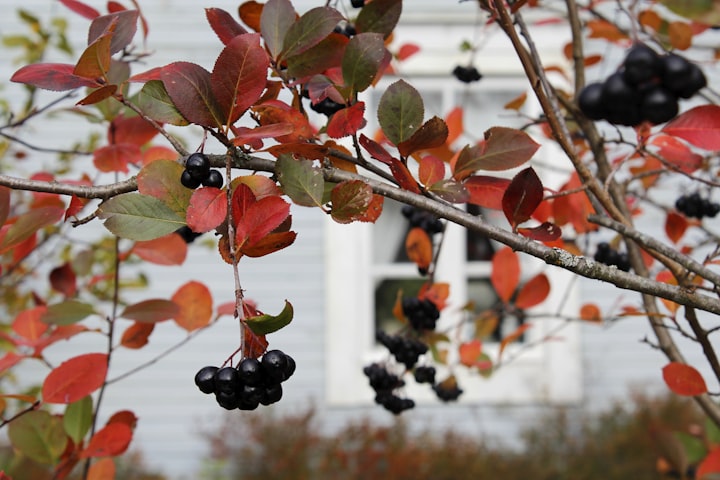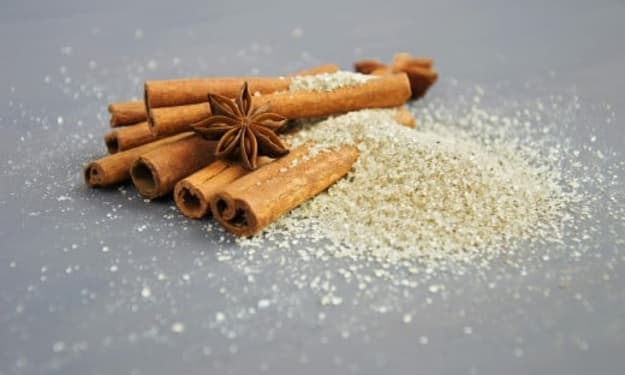
If you haven't already incorporated this lovely berry into your diet, now is the time. Chokeberries are harvested around October. We'll explain how it can help you.
Chokeberry is another name for chokeberry. The berries have a tangy, sour-sweet flavour.

Chokeberry's Beneficial Properties
- 15 milligrammes of vitamin C; 0.3 milligrammes of vitamin B3; and 0.02 milligrammes of vitamin B2.
- 0.02 milligrammes of vitamin A;
- 14 mg of magnesium
- 4 mg of sodium;
- Calcium (28 mg);
- 158 mg potassium
Numerous studies have found that chokeberry possesses anti-inflammatory, antioxidant, and anti-carcinogenic effects that benefit general health.
Helps to lose weight
Chokeberry berries have a low calorie content (approximately 50 kcal per 100 g), but they are high in dietary fibre and minerals. Chokeberry inclusion in the diet will assist enhance its health without adding extra calories.
Beneficial to digestion
Chokeberry is high in dietary fibre, which aids in the digestion process. Fiber is necessary for good gut health. It normalises faeces and relieves diarrhoea, constipation, bloating, cramping, and stomach pain. Because of its antioxidant and immunostimulant characteristics, chokeberry berries help to inhibit the formation of dangerous bacteria in the intestines.

Contains antioxidants
Chokeberry is high in antioxidants, which protect cells from free radical damage, according to research. 100 g of berries contains approximately 1752 mg of polyphenol and 1480 mg of anthocyanin - a rare substance that gives mountain ash its dark purple colour. Caffeic acid, quercetin, malvidin, epicatechin, carotene, and zeaxanthin are also present in chokeberry.
Cognitive Disorder Prevention
It is well recognised that free radicals cause a variety of cognitive diseases by causing damage to the central nervous system. Chokeberry contains anthocyanins, which make it an effective approach to lower oxidative stress in the brain. Chokeberry can help prevent Alzheimer's disease, age-related dementia, and cognitive impairment.
Immune boosting
Chokeberry is high in vitamin C, a potent antioxidant that aids in the regulation of white blood cell function. Vitamin C is required for the formation of collagen, which is required for the repair and development of organ and tissue cells.
Prevents eye disorders
Chokeberry contains carotenes, which are antioxidants that help minimise oxidative stress in the eyes. It also reduces the risk of macular degeneration and the formation of cataracts.

Skin-beneficial
Chokeberry enhances the skin's health and look. The skin ages fast as a result of oxidative stress; pigmentation patches, wrinkles, and folds emerge, and ptosis develops. Antioxidants, which are abundant in chokeberry berries, help to delay the onset of age-related changes.
Supports the health of the heart and blood vessels
Chokeberry is rich in potassium, which is good for the heart. Potassium acts as a vasodilator, relieves stress from the cardiovascular system. Potassium helps relax arteries, blood vessels, lower blood pressure, increase blood flow, and reduce the risk of stroke and heart attack. Antioxidants and dietary fiber are needed to lower cholesterol levels and neutralize free radicals.
Prevents Diabetes
The fiber, which is abundant in chokeberry, helps regulate insulin production and blood sugar levels, and prevents glucose drops and surges that can be harmful to diabetics.

How to add chokeberry to your diet
When buying black chokeberry, choose berries that are large, fresh, uniform, shiny, with a clean surface. Remove any berries with traces of mold so that it does not spread to the entire rowan tree. The berries can be stored in the refrigerator for about a week.
- Consumption of 100 g of chokeberry berries provides about 35% of the daily value of vitamin C. Eat fresh ripe chokeberry berries, add to oatmeal, yogurt, smoothies, fruit salads.
- Drink chokeberry juice. A glass of juice contains 21.7 g of carbohydrates, 25 mg of sodium, 250 mg of potassium and 33.3 mg of calcium.
- Dried chokeberry berries can be added to smoothies and tea.
- Take chokeberry supplements. Chokeberry can be included in the diet by taking natural supplements.
About the Creator
Sahina Bano
Freelance Blogger and Content Writer. I owe a website and write for my clients.






Comments
There are no comments for this story
Be the first to respond and start the conversation.